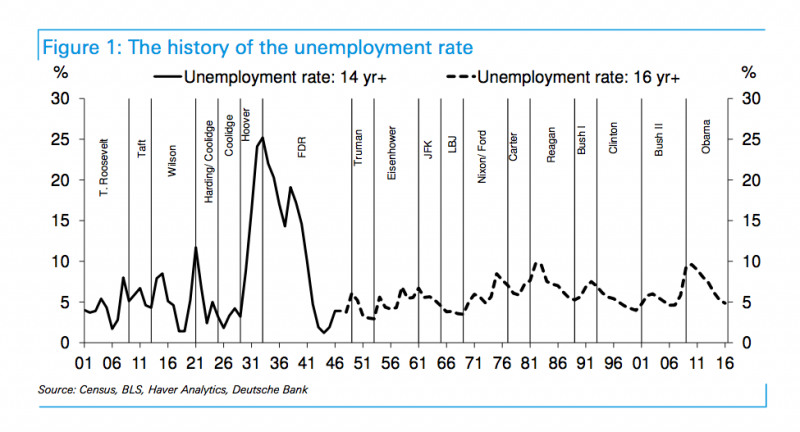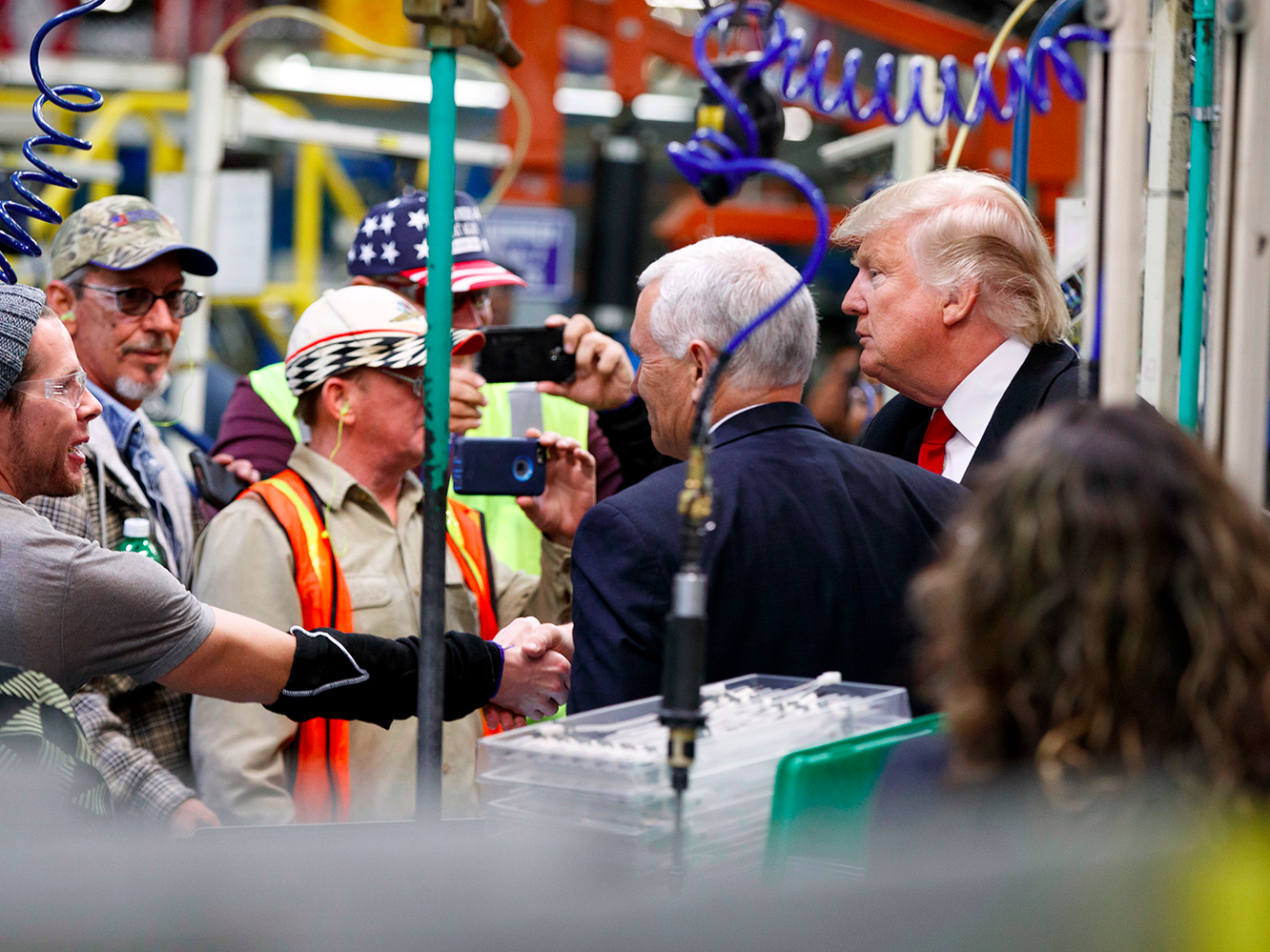US presidents face a key contradiction once the assume office. They must pay lip service to the free-market creed that “government does not create jobs” even as they desperately seeking to claim credit for all job creation under their watch. The truth of the matter is, however, that so much depends on what happens before they come into the White House. President Barack Obama, for example, came into power at the height of the worst financial crisis since the Great Depression. On the one hand that meant he faced a nightmare scenario of someone else’s creation. On the other, of course, he can claim success in having brought the jobless rate down from a recession peak of 10% down to below 5%. What does that mean for President Donald Trump? Well, a handy chart of how US unemployment has performed under presidents dating back to Theodore Roosevelt – courtesy of Deutsche Bank chief economist Joseph Lavorgna – gives us a clue.

The chart shows that Trump inherited a much healthier job market than Obama, of course. But it also means that there’s less progress to make here – and fewer opportunities for bragging rights at the next election. “While we believe the labor market is very close to full employment and expect further declines in the unemployment rate over the next couple of years, the historical record of how the job market has performed at similar points is more mixed,” LaVorgna writes in a research note to clients. The rate can always go lower, and it’s also true that the headline unemployment rate can mask underlying weaknesses in the job market, like low labor force participation and soft wage growth, which are particularly prevalent in today’s economy. Many workers still face a high level of instability and uncertainty in finding and keeping a job – and if Trump can help them then he’ll have achieved something important. Of course, the turbulent start to the new administration makes progress on that front unlikely.
